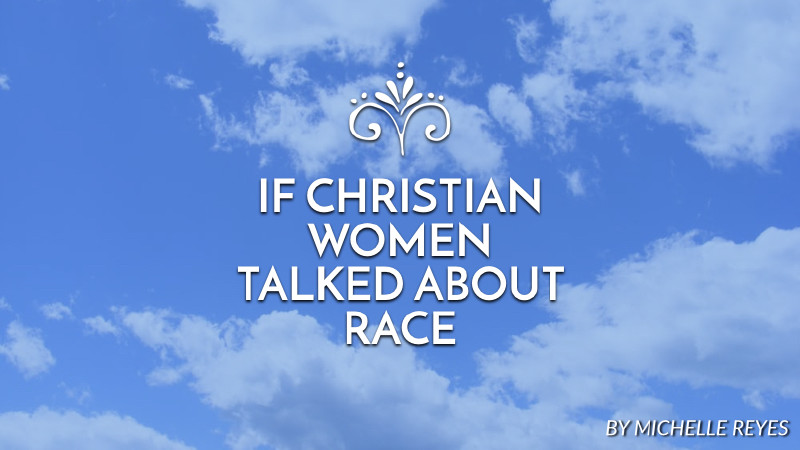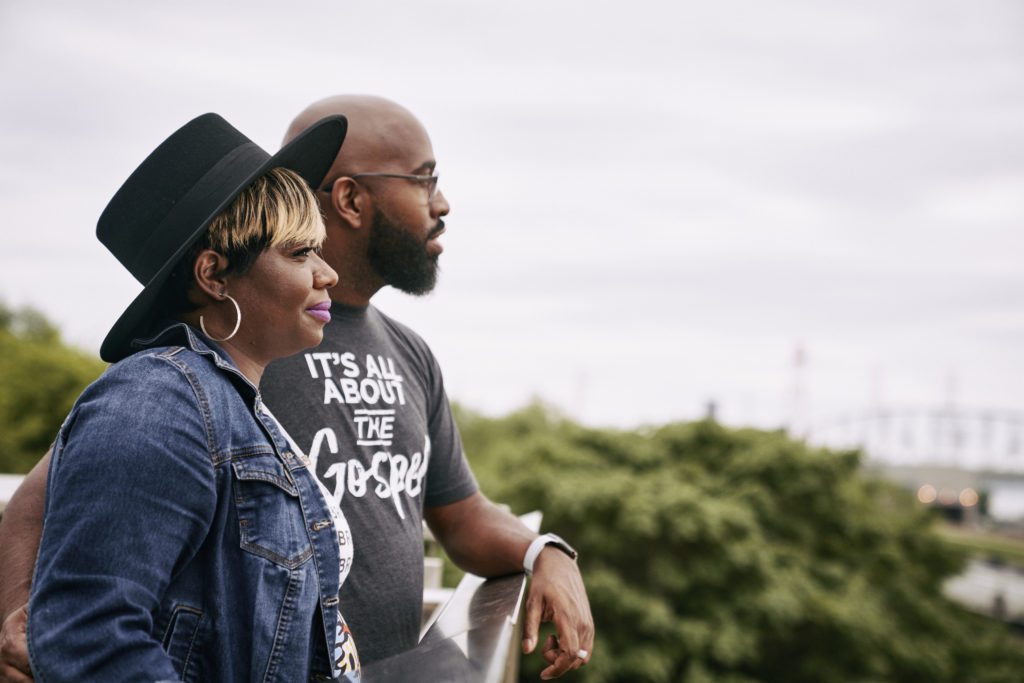I’m going to be brutally honest here. Christian women don’t talk about race as often as they should.
We talk about our kids, our crazy schedules, the challenges of ministry, the problems of gluten or the latest Netflix original show. We talk about God, our faith, our spiritual struggles, what God is doing in and for our heart and how He is encouraging us to be strong, committed mommas, wives and leaders. These topics seem to roll right off the tongue.
Easy. Simple. Sometimes mindless. So, why not race?
There’s so much one could say about race. It’s a huge topic from our country’s racial history to current racial injustice, discrimination and prejudice. Take a look at the events in Ferguson and Charlottesville, not to mention the Black Lives Matters movement as well as the resurgence of white supremacist and neo-Nazi groups nationwide. Race conversations are everywhere.
The usual argument I’ve heard from Christian women against talking about race is that it makes people feel uncomfortable or that it just ends in a fight.
Yes, this topic is a polarizing one. People may call you un-patriotic or even un-Christian. People may withdraw, disconnect or seemingly disappear from your life. Friendships can even end over-heated debates on the subject.
But I’m not encouraging that kind of approach. What is needed are humble, biblical and God-honoring conversations on race between Christian women—the kind of conversations that are critical but not hate-filled, provoking but not divisive. What is needed are the kinds of conversations that reflect God’s heart for the nations and for all people to come to Him.
Here are 3 simple ways to start doing this::
1. Bring up current events.
The next time you are having a coffee date or a play date with another Christian woman, make a concerted effort to bring up current racial events. Charlottesville and the Alt-Right are big ones. There’s also the debate on keeping up or taking down Confederate statues and the issue of gentrification and police enforcement violence among others. Find a moment or interrupt a moment if you have to. Be intentional about bringing up this subject at some point in your time together.
Why? Because the Bible cares about race.
The topic of race including racism and racial reconciliation are not just “social issues” as many Christians have argued. They are in fact a “gospel issue.” You can read more about “gospel issues” in a fantastic article by D.A. Carson called “What are Gospel Issues?,” in which he argues that “there’s no denying that God’s saving purpose is to draw all peoples—men and women from every tongue and tribe and people and nation—to Himself. The church is one new humanity, made up of Jew and Gentile. This trajectory starts at creation, with all men and women being made in the image of God, and finds its anticipation in the promise to Abraham that in his seed all the nations of the earth will be blessed. Moreover, the salvation secured by Christ in the gospel is more comprehensive than justification alone. It brings repentance, wholeness, love for brothers and sisters in the Christian community.”
In other words, if race is a “gospel issue,” and we, as Christians, are called to live out, speak and breathe the gospel, then we, as Christian women, need to be talking about race.
2. Ask each other, “What does the Bible have to say about events like this?”
Let’s not be quick to interpret current events with our emotions. There is a time and place for emotion, certainly. I don’t think that empathy is ever misplaced in these situations. Nevertheless, we would do well to balance our emotions with the sound word of God.
Plus, talking about current racial events becomes another reason to read our Bible which is never a bad thing!
You could turn to Numbers 12 where God punishes Miriam and Aaron for their blatant racism against Moses’ black wife, or Ephesians 2 where Paul shows how the gospel includes the reconciliation of Jews and Gentiles into one new humanity. You could read Romans 1:16-17 and Galatians 2:11-14. Passages like these and others demonstrate that the Bible’s categories of both racial problems and racial reconciliation intersect with salvation and gospel.
Now think about what would happen if we incorporated the language of these verses into our discussions of current racial events? Can you just imagine how differently we might think and speak about race if we were leading our discussions with God’s word? How could conversations about Black Lives Matter or Charlottesville not be God-honoring if our words are peppered with the redemptive language of the Gospel?
It’s certainly worth thinking about.
3. Pray about current events together.
Finally, let our conversations on race be balanced with prayer. Pray for God’s sovereignty over these events, for God to bring justice and for people to come to faith. Pray for the gift of repentance even for those with racial bias, pride and hate, and for unity among believers as well as for racial reconciliation.
Praying for these events also performs another important role: it forces us to rely on God, to trust in His sovereign will and omnipotence and to find reassurance and comfort in His total control over all things.
In Philippians 4:4-7, the Apostle Paul exhorts people to bring everything before God.
“But in everything by prayer and supplication with thanksgiving let your requests be made known to God. And the peace of God, which surpasses all understanding, will guard your hearts and your minds in Christ Jesus” (Philippians 4:4-7).
In other words, we should bring our fears and confusions to Him, our wishes and desires, even our anger and our pain. He calls us to bring all of this before Him. He may not provide you the answer you’re looking for but resting in Him will certainly bring His peace. Sister, that is an open invitation that we should take Him up on, starting today.
Published September 14, 2017



